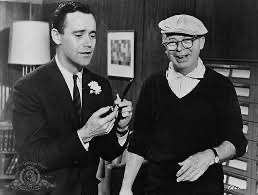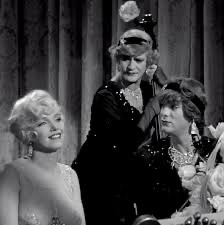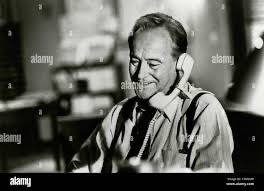#My fellow Americans
Explore tagged Tumblr posts
Text
"The bill – the Right to Contraception Act – would enshrine into federal law a right for individuals to buy and use contraceptives, as well as for health care providers to provide them. It would apply to birth control pills, the plan B pill, condoms and other forms of contraception."
One GOP member said:
“This is a show vote. It’s not serious,” GOP Sen. John Cornyn of Texas said. “Plus, it’s a huge overreach. It doesn’t make any exceptions for conscience. … It’s a phony vote because contraception, to my knowledge, is not illegal. It’s not unavailable.”
So...you blocked the bill because it's unnecessary, ...and you also blocked it because it doesn't include a carve-out that will let you make contraception unavailable.

That is definitely not at all what someone would do and/or say if their party was planning to restrict access to contraception if they take power in 2025!
(PS: Per that same link, they also want to repeal the prescription drug pricing agreements that Biden negotiated, including the one that caps insulin at $35.)
#My fellow Americans#we all get a say#On November 5#about whether people in our country will be forced to carry a pregnancy against their will#and about whether people will die because they can't afford insulin#vote strategically#vote blue#there is a difference#us politics
348 notes
·
View notes
Text

#supernatural#spn#destiel#castiel#dean winchester#us politics#2024 election#2024 presidential election#trump#harris#we are in the bad timeline#my fellow americans#today we have chosen fascism
78 notes
·
View notes
Text
To my fellow Americans on this app…
We’re probably overall fucked. Though if this country’s government wants anything more it’s to get the orange man impeached. The best thing we can hope for is an impeachment. So if this does happen here’s some protesting reminders:
1. Cover tattoos, birth marks or scars. Anything noteworthy to yourself that will get you seen and noticed immediately cover.
2. Wear something to protect your eyes, nose, and mouth. When I protest I wear an old paintball mask, not only does it hide your identity but it also protects your face.
3. Carpool and leave your car somewhere far away from the protest. The best option is to walk if you are physically able.
4. As hard as it is, stay calm and peaceful. The right looks for any reason to call the left insane and dangerous. Do not start a riot for the sake of the cause.
I’m a gay trans man who loves my friends, my body and am confident with myself. I’m not letting the senile old man who is a convicted felon who wants to cut school funding take control of my life. The power is no longer with the people but don’t forget we can always take it back.
17 notes
·
View notes
Text
Listen okay I think since the US wants to be all up in every other country’s business all the damn time, the rest of the world SHOULD in fact get a vote
#election 2024#my fellow americans#seriously go vote right now I’m not kidding I will come to your house with a bat if you don’t#this is mostly a joke I get that international politics is a whole mixed bag of what the fuck#especially when the us is involved#but also ? I’m a firm believer that the us needs to sit down and mind its own business#I would like to stop being at the epicenter of a history textbook chapter please and thank you
4 notes
·
View notes
Text
youtube
Painted Willie - Republican Suntan
#painted willie#republican suntan#dave markey#phil newman#hardcore punk#punk funk#punk#punk rock#my fellow americans#12'' ep#1984#Youtube
3 notes
·
View notes
Text
The happiest of birthdays in the afterlife to Jack Lemmon!










#jack lemmon#the apartment#the china syndrome#the fortune cookie#some like it hot#my fellow americans#grumpy old men#grumpier old men#out to sea#avanti#irma la douce#mister Roberts#short cuts#save the Tiger#fire down below#the prisoner of second avenue#mass appeal#that’s life#dad#glengarry glen ross#missing#actor#the odd couple#the odd couple ii#the out of towners
22 notes
·
View notes
Text
My fellow Americans, although we weren't able to flip Mississippi (wasn't expecting much but a man can dream), we pulled off a huge victory for democracy in Rhode Island, Pennsylvania, Kentucky, Ohio, and Virginia. We showed people what happens when you mess with people who really love this country. People can run their mouths and claim they love America, but their actions and policies reveal otherwise. We showed them what we think of them. This was especially true in Kentucky. They saw how powerful and useful Democratic rule is. A state as red as Kentucky realized they're better off with Democrats. And I'm sure other states will follow. This is a time of extreme uncertainty. However, one thing I'm certain of is that this country is in good hands. God bless the people of this country. God bless America
#2023 elections#mississippi gubernatorial election 2023#kentucky gubernatorial elections 2023#vote blue to save democracy#vote blue#reject gop fascism#god bless america#my fellow americans#politics#american politics#fuck the republican party#fuck the gop#virginia elections 2023#ohio elections 2023#rhode island elections 2023#pennsylvania eletions 2023
3 notes
·
View notes
Text

Jack Lemmon and James Garner hide out in the West Virginia Gay Men's Coalition parade with a marching band of Dorothys in My Fellow Americans (1996) including Jeff Yagher with a trumpet. Jeff was born in Lawrence, Kansas, and has 67 acting credits from 19 episodes of a 1984-85 series to 2014. Most of his credits are on tv, including six episodes of Six Feet Under.
3 notes
·
View notes
Text
Archivists on the Issues: Classified Records, Archives, and Fictional Depictions [Part 2]
Archivists on the Issues is a forum for archivists to discuss the issues we are facing today. Today’s post comes from Burkely Hermann (me), Metadata Librarian for the National Security Archive and current I&A Blog Coordinator. There will be spoilers for each of the books, animated series, films, and other media he will be discussing. This was originally published on February 7, 2023 on the Issues & Advocacy WordPress blog.
continued from part 1

In the episode "The Underground Tennis Tournament: The Campbelldon", Loid examines a file of his target, a man named Cavi Campbell, who has a painting in the basement of his mansion. As the story goes, the painting was originally owned by a general who had compiled a dossier of explosive top secret information which could tip the scales and cause possible cause military conflict if revealed, and the painting has a code revealing the dossier's location.
Classified records have often been depicted in popular culture. For instance, there is an episode of The Crown about classified records showing Duke Edward VIII collaborating with Nazis. Such records are also major part of the Spy x Family series. The protagonist, Twilight (voiced by Takuya Eguchi), poses as a father named Loid Forger, with a wife and child. He is tasked with a secret mission to keep two countries from beginning a war. As a result, he is often passed information through a network of informants, spies, and others, or is given mission briefings by dedicated agents. The information he receives often includes classified records. Another pertinent example is the 13-episode anime, Gargantia on the Verdurous Planet. In one episode, "Deep Sea Secret", the protagonist, Ledo (voiced by Kaito Ishikawa), demands declassification of the record. What he learns causes an epiphany. It results in him questioning what he thought about the world and his life's purpose, causing a mental breakdown of sorts.
There are other examples, apart from the tongue-and-cheek U.S. Navy recording studio named "Classified Records" in The Simpsons, which included subliminal messages in their songs which encouraged people to join the Navy. For instance, classified archives of the CIA are shown in an episode of the TV series, Alias. Furthermore, classified, and restricted, records are a major part of the animated adventure series, She-Ra and the Princesses of Power, which has many archivy themes. In one episode, Mara, the previous She-Ra, learns that the Heart of Etheria project is classified, with Light Hope worrying about information being accidentally shared with Madame Razz. In many others, records are only accessible when specific words are spoken, or specific people are detected by computer systems. The same could be said about the records inside the data archives of the World Organization Of Human Protection which is shown in the Totally Spies! episode "The Yuck Factor", or the "healing center" for Pearls known as The Reef, which is a structure used to create, repair, or modify Pearls, shown in the Steven Universe Future episode "Volleyball". Both undoubtedly contain restricted or classified records.
In Star Wars Rebels and Star Wars: The Clone Wars, two animated series, there are records which can only be accessed through magic or other means. As such, they are classified, as a result. Accessing secret, and classified, records is a major plot point for live-action films such as Sneakers (1992), The Hitchhikers Guide to the Galaxy (2005), and My Fellow Americans (1996). In other cases, like in Joker (2009), the records are even stolen. In the latter film, the records clerk is implied as an impediment to protagonist Arthur Fleck, as are the bureaucratic requirements which require a signature from Fleck's mother, before he can take the file.
Samantha "Sam" Cross, a certified archivist who was part of the SAA Issues & Advocacy News Monitoring Team in 2018, has highlighted this on her blog, Pop Archives. She notes Carol Danvers (later becoming Captain Marvel) examining likely classified information in Captain Marvel and Loki trying to use his manipulation and charm in the Loki TV series to get classified files from a female character credited as an archivist. She also writes about a character in the Danganronpa game, Byakuya, who "read and study the classified information" in an archives-like room and states that many of the documents shown in Federal Bureau of Control, in the video game Control, are redacted, and classified. [7]
Other pop cultural critics in the library and information field note other examples. For instance, librarian Jennifer Snoek-Brown, known as the creator of the site Reel Librarians and real-life librarian at Tacoma Community College, noted classified records featured in Rollerball (1975), Soylent Green (1973), and likely ones in Tinker Tailor Soldier Spy (2011). [8] Elsewhere on her blog, she pointed out similar themes in Mercury Rising (1998) and WarGames (1983).
The over twenty popular culture examples described in this post only scratch the surface. There are as undoubtedly many more films, comics, and series which featured classified or restricted records. The examples noted in this article do not always feature archives, however, as some creators confuse archives with libraries. To add insult to injury, archivists are often not present, resulting in the characters, who have no archival training, to go through the records themselves. Very few depictions in popular culture reflect the current reality of classified records within archives. Hopefully, this changes in the future.
© 2022-2023 Burkely Hermann. All rights reserved.
Notes
[7] Cross, Samantha. "Archives in the Movies: Captain Marvel." Pop Archives, Aug. 20, 2021; Cross, Samantha. "Archives in Video Games: Danganronpa: Trigger Happy Havoc." Pop Archives, Jan. 19, 2021; Cross, Samantha. "Archives on TV: Loki." Pop Archives, Jun. 24, 2022; Cross, Samantha. "Archives in Video Games: Control." Pop Archives, Aug. 20, 2021.
[8] Snoek-Brown, Jennifer. "A round-up of library, archives, and reel librarian scenes in MCU’s Phase Four TV series (so far)." Reel Librarians, Aug. 24, 2022; Snoek-Brown, Jennifer. "Reel librarians and archivists in 16 sci-fi films." Reel Librarians, Mar. 11, 2020; Snoek-Brown, Jennifer. "Reel librarians in ‘Rollerball’ | Analyzing the 1975 original film and 2002 remake." Reel Librarians, Feb. 1, 2017; Snoek-Brown, Jennifer. "Reader poll of runner-ups, Fall 2016: ‘Soylent Green’ and the Books." Reel Librarians, Nov. 30, 2016; Snoek-Brown, Jennifer. "First impressions: ‘Tinker Tailor Soldier Spy’." Reel Librarians, Jan. 23, 2012.
#suisei no gargantia#gargantia on the verdurous planet#the crown#spy x family#totally spies#she ra#spop#light hope#star wars rebels#star wars the clone wars#sw rebels#sw tcw#sneakers#the hitchhiker's guide to the galaxy#my fellow americans#reel librarians#jennifer snoek-brown#samantha cross#confusion#stereotypes#archives#libraries#archival science#archival studies#archival#captain marvel#loki series#danganropa#control video game#video games
10 notes
·
View notes
Text
He right.
Punch nazis in the face and protect your Jewish brothers and sisters in that space!
Protest for Palestinians!
Call your reps for the Congolese!
Haitians hound out all the lies that call them out for their evil ways!


links to the donations mentioned
https://unrwa.org/
https://www.instagram.com/gazamutualaid
https://campusbailfunds.com
#like if we all band together then...#yeah i tried to spit bars and its ight#artists on tumblr#gaza#free gaza#my fellow americans#HOW ARE YALL NOT READY TO HAVE A REVOLUTION RED NOR BLUE THEY DON'T CARE ABOUT YOU#save palestine#yall hear me out#grab the pitchforks
122K notes
·
View notes
Text
I think elmo should really check in rn
0 notes
Text
The funniest part about being raised by someone who was born in the 50s while the rest of my friends’ parents were born in the 70s-80s is that I sometimes say weird shit and my friends get to be like “Uh hey? What the fuck?”
#I say shit like#my fellow Americans#or countrymen#or reckon#or some people just have too much time on their hands#this also applies to being raised in a family from the south while living on the west coast#sometimes I’ll pull out a family saying like ran like a scalded dog#and my friends just kinda blue screen
1 note
·
View note
Text
ma halani :(
I’m going on a work trip followed by a personal trip the Monday after DATV drops, so I probably won’t even get past the CC until, like, 11/15.
0 notes
Text
This is why conservatives undermine education. If you had a good history, social studies, or civics class, then at least you know the presidency doesn't control prices.


Many such cases.
28K notes
·
View notes
Text

Dan Aykroyd as President William Haney in My Fellow Americans (1996). Dan was one of the 1980s biggest stars with four blockbuster hits among the 100 biggest grossing films of the decade, only one behind Harrison Ford and Eddie Murphy. Dan has four entries among my best 1001 - The Blues Brothers, Ghostbusters, Driving Miss Daisy, and Sneakers.
2 notes
·
View notes
Text
A pdf-version of my post which talks about records erasure, digitization, and 1990s Hollywood films.
#1990s films#records erasure#digitization#pdfs#hollywood#hackers#the net#my fellow americans#internet archive#wordpress#1990s
2 notes
·
View notes